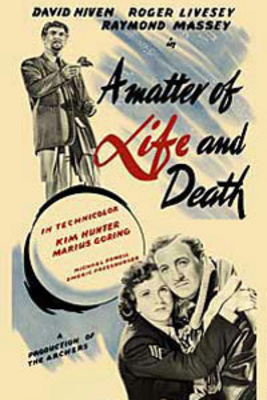Life assurance – not all it seems
Dominic Thomas
Dec 2022 • 11 min read
When life assurance is not all it seems
Life assurance is one of the few solutions to the question ”how can I help?” when posed to a family that has just experienced permanent, life-changing loss. Over the three decades that I have been advising clients, this is, without doubt, one of the most challenging.
Most of us live as though we have an abundant supply of tomorrow. Rarely does anyone really wake and decide that life assurance (or any financial protection) is the major task to get done today.
Death is of course a subject that literature and our culture regularly address, yet in those intimate spaces of our lives, it’s a topic rarely discussed, perhaps one of the last taboos. This was never more starkly revealed to me when (many years ago) someone told me not to talk of death and Wills because he believed that it would make it a reality. Naturally he never became a client (I only work with mortals).
LIFE ASSURANCE – BAD SISTERS
I was intrigued by a series on Apple TV called ‘Bad Sisters’. I enjoyed the series, but wanted to address the premise of the drama – which confused me initially. I will not ruin the story at all by simply saying that a claim against a life assurance policy is being challenged by the adviser, which in my world does not reflect the truth.
A WASTE OF MONEY?
Advisers arrange financial protection (life assurance, critical illness cover and income protection). These are all policies that everyone takes out hoping to never have to claim on them, because to do so means something awful has happened to you. We all actually want the cover to be a ‘waste’ of your money… though using as little of it as possible to secure the right, most appropriate balance of cover.
MAKING A CLAIM
In the event of a claim, it is the insurer that assesses the legitimacy of a claim against the policy terms. In the case of life assurance, it is fairly evident if a claim is valid (the assured has died). In more nuanced cover (income protection and critical illness), the assured is alive and unwell, the question is therefore “is the condition being suffered covered?”. In both circumstances fraud is not uncommon, though I would suggest it is pretty rare and most claims are paid out fairly swiftly and appropriately. An oversimplified for instance, is that a broken arm is not grounds for a claim for a critical illness or inability to work long term, the loss of an arm, however may be grounds, particularly if you are a surgeon.
BROKER BEWARE…
The series, whilst set in Ireland and therefore not regulated by the FCA, has the insurance broker Claffin & Sons investigate a claim for life assurance. Whether in Ireland or here in the UK, this is an alarm bell for authenticity. The small family run insurance broker is reluctantly run by son Thomas Claffin after his father committed suicide. Early on it is evident that all is not well, a database of no policies and concern about the collapse of the business. This is not how things work, unless fraud is being committed.
I can assure you that in the event of a claim, I and probably any adviser will be eager to get you funds from the insurance claim as this is probably the most obviously meaningful aspect of our work, protecting you and your family when disaster strikes, providing funds to make the financial pain disappear. Advisers will certainly want to ensure that a claim for the more complex cover is worth claiming for (broken arm example), but will then seek to hassle the insurer for agreement and payment of funds to you the claimant. Some insurers are better than others in terms of efficiency, but we have never had a valid claim refused.
Claffin didn’t arrange cover, they simply committed fraud, taking and living off the premiums and hoping that their clients didn’t make a claim. That is fraud (honestly I am not spoiling the excellent series and plot).
A PAPER TRAIL WELL DOCUMENTED
You will have a policy document with an insurer and be paying monthly premiums or in some circumstances, annually. These will show on your bank statement and are not paid to the adviser or broker. Even with all the mergers and subsequent name changes for the insurance company you are paying, you will receive a plethora of correspondence, the main challenge being to keep up to speed of who say Commerical Union, Clerical Medical, Friends Provident, Skandia (and so on) now are. You have a unique policy number. If in any doubt get in touch. If you are unsure if you have enough financial protection or perhaps too much now, please ask.
As for the series by Sharon Horgan, I thoroughly enjoyed it. My purpose here is not to suggest otherwise, merely to explain how an insurance claim would work in practice. Here is the trailer for the series, with a cast that includes….
You can read more articles about Pensions, Wealth Management, Retirement, Investments, Financial Planning and Estate Planning on my blog which gets updated every week. If you would like to talk to me about your personal wealth planning and how we can make you stay wealthier for longer then please get in touch by calling 08000 736 273 or email info@solomonsifa.co.uk











